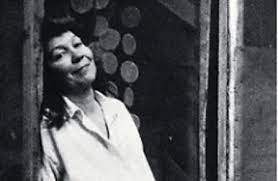
One weekend a few years back, I found myself at a bed and breakfast in Vermont, where my wife was enjoying a weekend of tennis with friends. I had with me a copy of Wislawa Szymborska’s Map: Collected and Last Poems, a 464-pager sure to see me through the short stay.
Or so I thought. Turns out, my insomnia had other ideas (it’s willful like that). Rising in the thin hours of the morning dark, I repaired to the first-floor library where I could turn on a light and read without disturbing anyone. Soon I was fresh out of Szymborska and scouring the shelves for another book.
It was here that I found a book of poetry by native daughter Ruth Stone, a Vermonter who lived from 1915 to 2011. It was Stone’s book that got me through the weekend. It also introduced me to a poet I’d never heard of (a tribe I’ve since learned is quite large).
I like Szymborska’s poetry, and I discovered I like Stone’s too. As place holds a preeminent place in memory, especially when it comes to book associations, I will always remember this Vermont weekend and this B&B for those two books by those two poets, one if by Poland and two if by Vermont.
If you’re unfamiliar with Stone, here’s an example of her work:
Before the Blight
by Ruth Stone
The elms stretched themselves in indolent joy,
arching over the street that lay in green shadow
under their loose tent.
And the roses in Mrs. Mix’s yard pretzeled up her trellis
with pink Limoges cabbage blooms like Rubens’ nudes.
My lips whispered over the names of things
in the meadows, in the orchard, in the woods,
where I sometimes stood for long moments
listening to some bird telling me of the strangeness of myself;
rocked in the sinewy arms of summer.
Desire under the blighted elms, indeed. In this brief 10-liner, you can enjoy the personification of “indolent joy,” the imagery and metaphor of a “green shadow / under their loose tent,” and the co-opting of a noun to serve a verb’s visual demands: i.e. “pretzeled.”
And what about those “pink Limoge cabbages” that bloom “like Rubens’ nudes”? Nice, that.
It puts you in a contemplative mood to listen to the whisper of cascading prepositional phrases like “in the meadows, in the orchard, in the woods” — places where birds tell you of the strangeness of yourself, places where summer rocks you in its sinewy arms, places like Vermont.